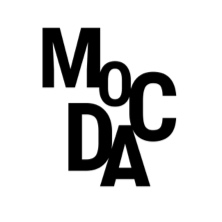Not Only RGB: Q&A with Mathieu Merlet-Briand
- MoCDA Team

- May 19, 2023
- 2 min read
Not Only RGB (Decentraland, October 2022-June 2023) is a MoCDA group show supported by Decentraland DAO featuring works created by Kevin Abosch, Matt Kane, 38‰ (Mattia Cuttini and Luca Donno), Sarah Meyohas and Mathieu Merlet-Briand.
This is a Q&A session featuring curators Chiara Braidotti and Anastasia Pineschi in conversation with artist Mathieu Merlet-Briand.

For this exhibition, you created a new work, Purple Mineral, which exists purely in digital space. How did you select what elements were critical to preserve in this digital format?
This artwork was inspired by my sculpture Eroded Mineral Sculpture created for the Thailand Biennale, Korat 2021. This new work Purple Mineral is also the continuation of my New Nature series of Mineral Sculpture. In the context of Decentraland, the graphic possibilities are limited. So the artwork has been designed to play with those constraints to be compressed and optimized in this particular digital space.
What is the role of materiality in your practice, and given that this work is presented in a virtual exhibition, how do you feel that your New Nature series changes when presented in digital space?
In terms of materiality and shape, I’m not convinced by the digital quality possible in Decentraland. In the end, the global rendering is rather low poly, so it flattens the global visual experience. Yet, working on my sculpture, I found it interesting to seek a good visual balance in this digital world; it reminded me of the Internet aesthetic described by Hito Steyerl in the text In Defense of the Poor Image (2009), where artworks circulated from screen to screen into the digital word, often through smartphones in "slow digital connections".
Is it a critical initiative to preserve the world as we know it, or does digital archiving act merely as a stopgap measure for wider environmental issues?
My New Nature series questions our contemporary organic relationship between Nature & Technologies, between climate crisis and digital worlds. But I don't think that the digital servers that run the Decentraland space here are a solution for wider environmental issues. For some it’s maybe the total opposite, regarding the numerous articles on the environmental impact of NFTs for example. But yes, in a way it helps to produce less or to make people travel less with an offer of new social experiences through these digital spaces. My goal is above all to increase awareness of these climate issues through my works, for my practice to be a social vector of conversation on these fundamental contemporary issues. But I have no claim to provide an answer here in this context. This digital sculpture recalling the Stonehenge site is an eroded stone lost in an ocean of information.




Comments